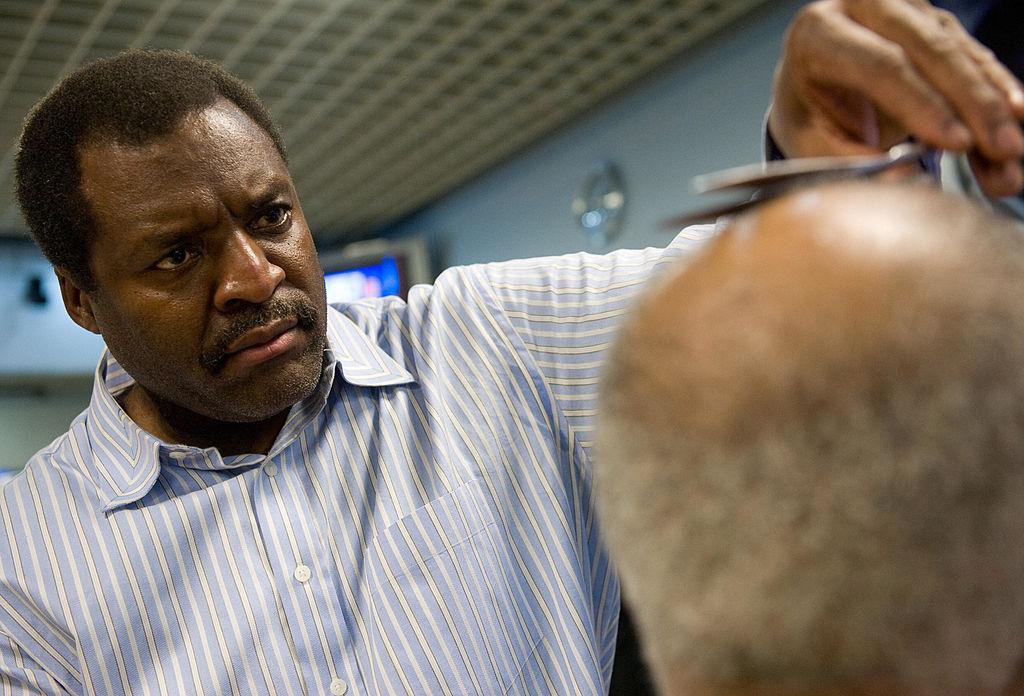Coronavirus: The economic tale of a set of lockdown hair clippers
With hairdressers and barbers shut, Britons are turning to a DIY approach. This shows the repercussions for workers of Covid-19 restrictions long after they’ve been relaxed, writes James Moore


Hair clippers are the latest item the pandemic profiteers are feasting upon, at least according to one of the innumerable unwanted press releases that appear in my inbox every morning.
At this stage of the lockdown it’s a statement of the bleedin’ obvious. I got lucky, managing to secure an inexpensive, and mercifully easy to operate, model through Argos.
Now, I know that the appearance of one’s hair is of small import right now. It falls squarely into the category of “first world problems”. Still, when you’re follicularly challenged, the look created by thick tufts intermingled with nothing very much isn’t a pleasant sight.
It looks even worse when combined with a pasty face and bloodshot, bag-ridden eyes.
In the midst of my Covid-19 recovery, the application of those clippers felt almost as good as the max doses of paracetamol and vitamin C tablets I’ve been popping with wild abandon.
But there’s an economic story to be told in connection with their purchase.
Since my family moved to an outer London borough, we’ve been calling upon the hair cutting services of a neighbour, who’s a professional and has the services of a fancy professional set of clippers, not to mention scissors and all the attendant bits and pieces required by her trade.
Every use of those clippers represents a fee she’s missed, and will never recover.
A run on clippers will surely have been welcomed by Argos, which is probably struggling right now.
But its owner Sainsbury’s has its grocery business to pick up the slack, not to mention a business rate holiday, worth well over half a billion pounds to rival Tesco. The figure was revealed in its recently reported annual results.
It’s also good news for Phillips, the clippers’ maker, but it’s a big multinational, one that has a substantial healthcare division. So again, it will manage just fine.
It’s the person those clippers have temporarily replaced we have to worry about.
I have to confess, I didn’t particularly enjoy the experience of using them, although that’s partly because I have only one fully functional arm (the model was chosen based upon a review written by the partner of an amputee).
So our neighbour needn’t worry on my account.
But is that going to be true of everyone who’s bought clippers? Will some opt permanently for DIY haircare? Especially those such as myself who, let’s face it, aren’t much in the market for complicated styling?
This is an important, and troubling, question.
It’s one that extends far beyond personal grooming.
Many people will have turned to improvisation and DIY for jobs they might otherwise have paid freelancers and small businesses to do for them prior to the advent of the pandemic and the accompanying lockdown.
The impact on people who previously provided those services could easily extend beyond the short-term hit, after which time the limited assistance that’s been made available to them will have been withdrawn.
I guess the message is support your local freelancer. You might even consider it patriotic.
Join our commenting forum
Join thought-provoking conversations, follow other Independent readers and see their replies
Comments
Bookmark popover
Removed from bookmarks